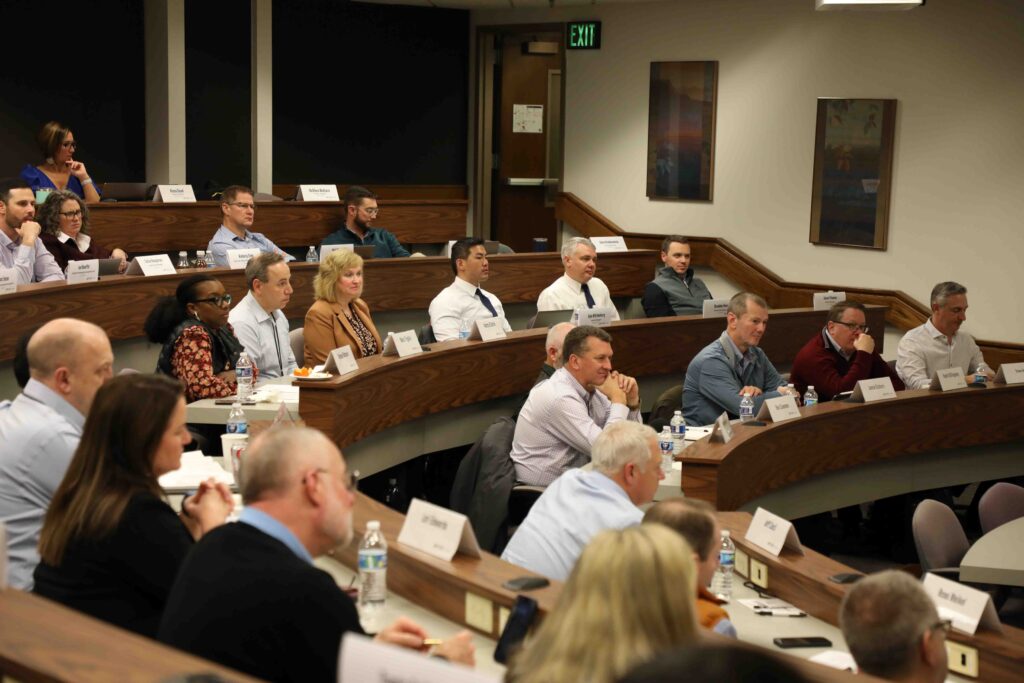The recently released USDA Ag Census report on farm consolidation proves what every farm input supplier has known all along: Farms are getting larger and larger. While the rate of consolidation seems to have slowed slightly in recent years, the trend continues in almost every sector of farming. A larger and larger share of all input purchases are made by fewer and fewer farmers, making each one increasingly important to input suppliers.
For example, by 2015, over half of the total value produced by American farmers came from slightly over 3 percent of farms that each have over $1 million in total revenue. Further, these larger commercial crop or livestock operations are rapidly moving toward greater specialization on their farms. And the data shows they are measurably more profitable, largely because they are able to gain efficiencies by utilizing new technologies more effectively. However, about 90 percent of our farms continue to be family farms, and many are multigenerational with several decision makers and influencers and complex decision-making structures.
What the most recent Ag Census data does not show (but every agribusiness knows) is that these farmers’ sophistication, business savvy, technical prowess, and demands have also increased dramatically. This places great demands on agri salespeople whose job it is to communicate how they and their companies create real value for growers and producers.
Agribusiness has also experienced much consolidation over the past few years. The number of basic input suppliers has decreased, and their size has increased dramatically. There has been a lot of investment in new technology. While there is a marketing advantage in ‘building a better mouse trap,’ the fact is that in today’s fast-paced world, modern technologies are rapidly imitated or duplicated. While each product or company has some unique characteristics and advantages, nearly every company offers a set of products, services and programs that are pretty good. The result is that products and services rapidly become commoditized. Most companies then rely heavily on their field sales staff to utilize their own sets of attributes to create and communicate tailored value that matches the unique needs of each important customer.
Yes, it’s a different dog-eat-dog world out there.
That is why the Center for Food and Agricultural Business at Purdue spends a lot of time researching how farmers make buying decisions. Just a few months ago, we released our most recent of a series of studies. Our Large Commercial Producer Project studied more than 1300 commercial farmers and ranchers from all over the U.S. in six commodities: corn/soybean, wheat/ barley, cotton, fruit/vegetables, dairy, and cattle. Several themes popped out that are particularly important to agri salespeople working to address this rapidly changing marketplace.
- People management is a very big deal for commercial producers. The larger the operation, the more important controlling costs through people management seems to be. How does your product or service impact a farmer’s labor cost?
- Outsourcing selected services, such as crop scouting, while providing their own application of crop protection and fertilizer, is popular with producers because it gives them more control and it is more cost effective. Livestock and dairy producers favor outsourcing nutrition and veterinarian services. How much time do you spend cultivating relationships with your customers’ key service providers who often are strong influencers?
- Risk Management has taken center stage for many farm businesses. This spans all kinds of risks: production, market, financial, and human. While production risks were the most common concern, many other risk categories were also on their minds. Specifically, how can your product or service help your customer manage important risks?
- Information and Salespeople are taking on a major new role in the farmers’ buying process. It would be fair to say that most farmers do not like to be sold. They are running businesses and making business decisions. They expect to buy products and information that contribute directly to their bottom line. Purchase decisions are increasingly business decisions based on hard data and analytics. While personal relationships continue to be important, information and how it is delivered is rapidly reforming the meaning of the word “relationship.” How do your customers see you? Do they see you as a person who sells products or as a highly trusted and useful resource who helps them accomplish what they want to achieve?
- Procurement is an increasingly major factor in operating a successful farm business. In today’s business climate, farmers are forced to carefully evaluate every element of value they receive for their expenditures. This includes establishment of metrics around attributes that are important to them. Metrics are measurements to help quantify what they receive. How effective are you in demonstrating the real difference that your products, your services, and you bring to their farm businesses and that help them justify their preference for doing business with you?
- Performance/Price/Relationship: What is most critical? Answer: It’s complicated. All of these are important, of course. But how important depends on the nature of the buyer, their business model, and the nature of the product or service they are buying. Animal nutrition, for example, is very different than fertilizer. Farm equipment is often quite different than genetics. Some farmers are far more prone to focus on price while other farmers place more weight on relationships. Still others give strong emphasis to performance as a major component of return on their investment. How well do you really know your most important accounts and the relative importance of each of these major factors? Do you effectively adapt your approach to each appropriately?
Precision Selling
These are the reasons that the Center for Food and Agricultural Business continues to offer its very popular Precision Selling seminar.
Precision selling strategies fit today’s producers and growers who are much more precise in their own approach to cropping and animal production decisions. Research makes it clear that agri salespeople who can create value that precisely fits a prospect’s unique situation, businesse model, and needs have a much better chance of building long-term mutually profitable relationships, sometimes known as loyalty.
The Precision Selling workshop delivers proven tools to sell more precisely. For example, you will learn to use a tool for prioritizing prospects. This tool will help you identify which prospects are most valuable and are more likely to generate the greatest return on your invested time. You will learn strategies for discovering what lies behind more technical or product-oriented needs. You will hear directly from farmers who come to campus to be a part of this program. They will take off their gloves and reveal what is really on their minds when they encounter salespeople, and how they feel about salespeople who come to their farms but miss the most obvious clues about what is really important to them.
But maybe the most valuable part of the Precision Selling workshop is its design. It’s not a bunch of lectures. It is learning new tools and hearing real farmers talk about their decision process in purchasing inputs. It is networking with peer professionals from all over the country and discovering new ways of doing your job more effectively.
Come join us. You will be glad you did!



